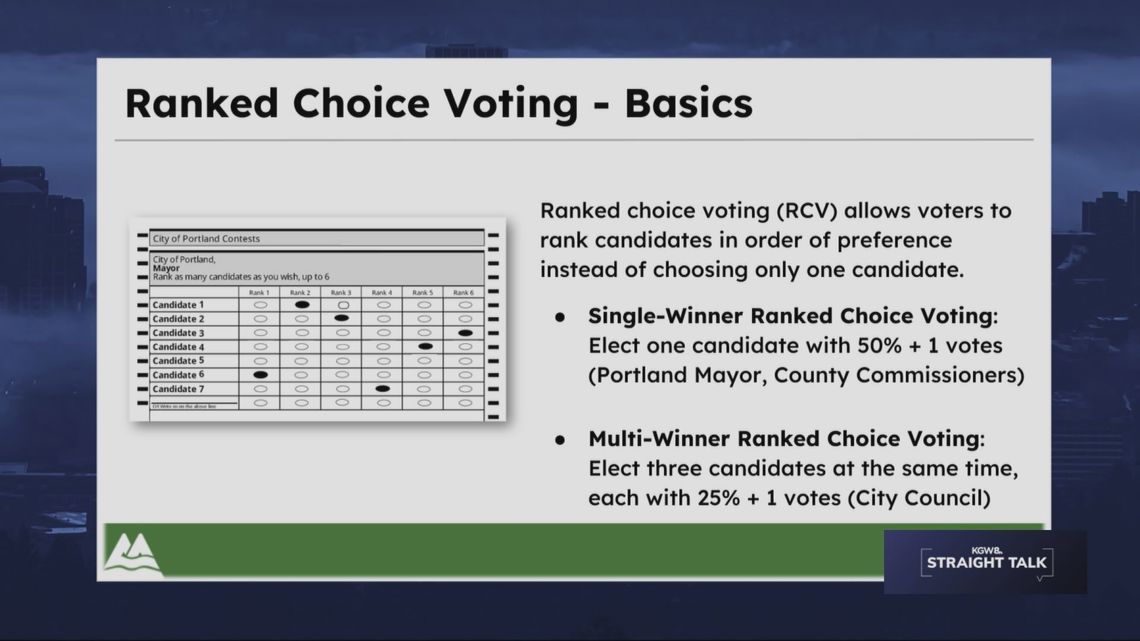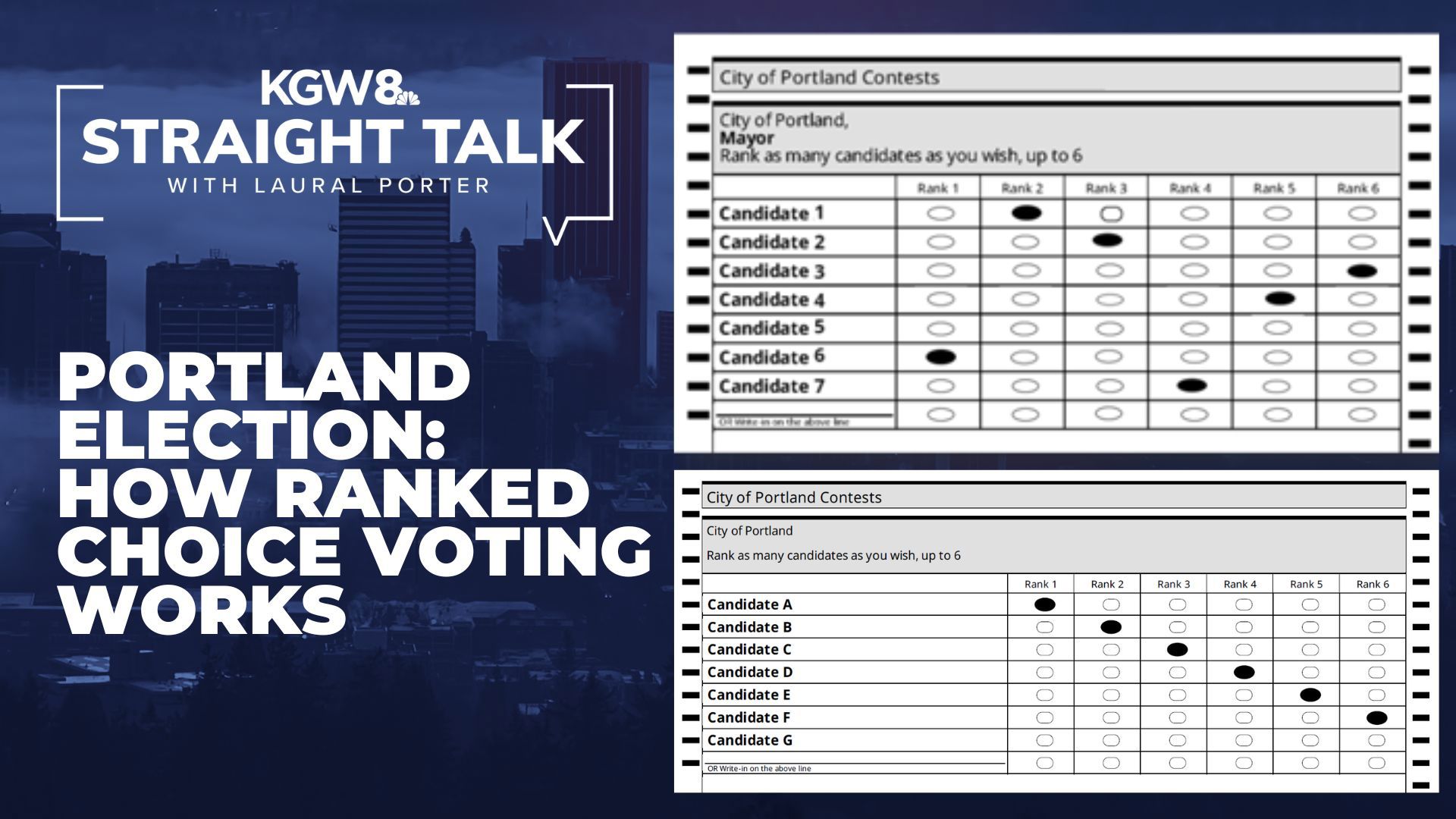PORTLAND, Ore. — The general election on Nov. 5 is less than two months away, where voters in Portland will not just decide who the next president will be, but also locally who will be the next mayor and city council members.
This year for local elections, Portlanders for the first time will have the option to rank their choices in order of preference through ranked-choice voting.
In this episode of "Straight Talk," we walk through the process of how ranked-choice voting works and what Portlanders can expect out of their ballots.
The deadline to register to vote in Portland is Oct. 15, and ballots will be sent out on Oct. 16.
What Portlanders will vote on?
This year is an historic election in Portland, as it is the first time voters will pick elected leaders under the new city government. Instead of voting for four city council commissioners, Portlanders will select a 12-member city council.
The main difference is that the Portland City Council will look more focused on passing policy — like state or federal legislatures — instead of managing bureaus and day-to-day operations like they do now.
Also in November, Portlanders will vote on a new mayor whose role in the new government will be slightly different as well, and a new city auditor will get picked.
What's ranked-choice voting?
Traditionally, voters choose one candidate, and whoever gets the highest percentage of the vote wins the election, even if they don't win a majority.
But with ranked-choice voting, instead of just voting for one candidate, voters rank them in order of preference.
If nobody gets more than 50% of the first-place votes, the person with the least votes is eliminated. Voters who picked that last-ranked candidate as their first choice will have their votes go toward their second choice — in what's an instant runoff.
The process keeps going until someone gets a majority and is declared the winner.
"One of the advantages that is inherent in this system is that you have more choice that's just obvious from your ballot," said James Eccles, an elections analyst with Portland Auditors Office. "Instead of having a single column to select a single candidate for your choice, you're going to have up to six to rank. So more of your options and your voice is seen on that ballot."
How's a winner decided in ranked-choice voting?
For the Portland mayoral race, single-winner ranked choice voting will be used, where the candidate will win when they have 50% of the votes plus one.
In the other Portland election for the 12-member city council, multi-winner ranked choice voting will be used. In this case, three candidates are elected at the same time, each with 25% of the votes plus one.
If there's a candidate that as a voter you really don't like, you don't need to rank them, said Tim Scott, director of Multnomah County Elections.
"Don't mark it. Don't vote for anyone that you don't want to serve in office," Scott said.
Essentially, voters only need to focus on ranking their favorite candidates.
A couple things to be cautious of with this year’s ballot. Portland voters will need to pay extra attention to which row and column they are filling in. If two ovals are filled in within the same row and column, that ranking may be skipped in the tallying process. However, any correctly filled-in rankings on that ballot would still be counted.
Details on how ballots are counted can be found at www.portland.gov/vote.


KGW's Pat Dooris and Jamie Parfitt contributed reporting to this article.

